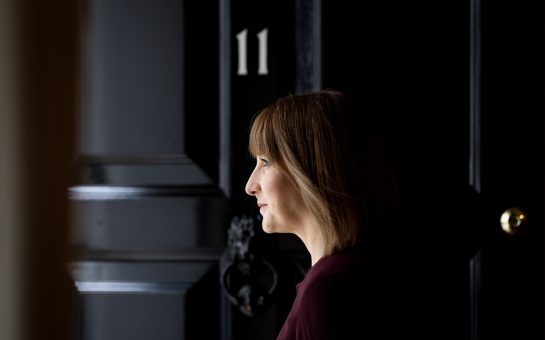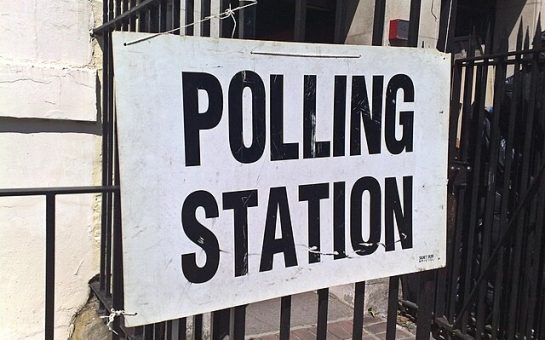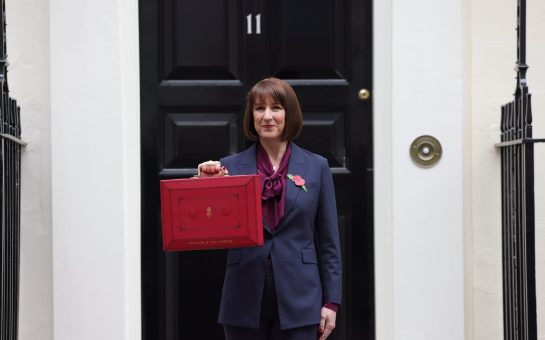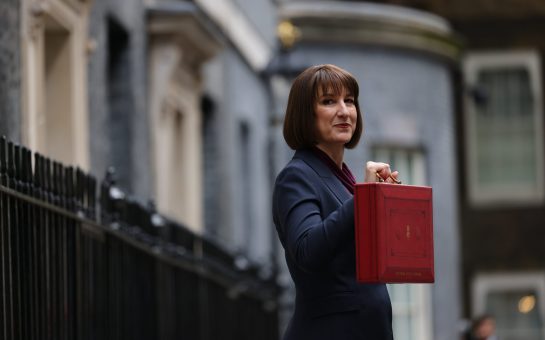British politics has increasingly seen a turn towards a more personality-based system which uses public figures as a selling point for party policies.
With the emergence of televised debates, magazine features and party leaders attempting to relate to ‘everyday’ people, UK political campaigns have arguably become a popularity contest.
Nigel Farage has repeatedly been described as a man ‘you would like to go for a pint with,’ suggesting UKIP’s success is as much about Farage’s public image as it is about policy.
The British system has shifted to an Americanised politics where party leaders are celebrities as well as politicians.
Last week the Daily Mail led with a story detailing Ed Miliband’s ‘tangled love life’, igniting national debate about the relevance of leaders’ private lives in the run up to elections.
MM took to the streets of Manchester and asked: “Has British politics become a personality contest?”
| YES | NO |
| 73% | 27% |
Oliver Eastwood, 25, a waiter at Home Sweet Home, Northern Quarter, believes the various media platforms politicians now use are just a means to gaining votes.

FALSE PROMISES: Oliver believes that politicians hide behind false promises
He told us: “Party leaders have all been in different magazines and papers recently doing ‘fun’ and ‘relatable’ things to get votes.
“Labour recently said they will reduce student fees to £6,000 which is just making them look good off the back of an empty promise, as in reality this is still a lot of money.
“It is all just a ‘who can promise more’ system.”

POLICY OVER POPULARITY: Stevie admits that she doesn’t care about a politician’s private life
Stevie Mackenzie-Smith, 23, a freelance writer living in Northern Quarter says it is policy contest rather than a personality contest, but the media are to blame in prioritising public figures.
“It is a policy contest but the problem is the policies are not very consistent,” she said.
“Party leaders are all just saying what electorates want to hear, but it is up to the voter to decide why they are voting.
“The media really values personality and sometimes voters are swing.
“The private lives of politicians do matter, but I don’t care about them smoking weed at university or their love life.
“I do care however about who they associate with, for example David Cameron is friends with Rebecca Brookes.
“In regards to policies, I think there should be less focus on immigration and more on welfare and the NHS.”
Rhianon Lingwood, 24, a chef at Soup Kitchen, Manchester, sees British politics as a mirror of the American personality contest system.
She said: “With televised leaders’ debates and integration with ‘normal’ society, British politics has taken on an Americanised idea.
“David Cameron wins because he is a better public speaker and is able to detract from the party’s policies.
“In my eyes, the most important thing in politics is proportional representation.”

PERSONALITY CONTEST: Ric admits that politics has become a popularity contest
Ric Stringer, 25, a bartender living in Withington believes it is important what politicians are like as people, but policies ultimately take priority.
“It definitely has become a personality contest, but what the party is claiming to represent and its policies are most important.
“Look at someone like Gordon Brown. He is a brilliant politician and a respected economist but he should never have become Prime Minister.
“It is all about PR and how you sell yourself, but Ed Miliband should worry less about smiling, because he is a creep.”
Tahir Afzal, 18, a phone shop manager believes it is all about how politicians appear, but if something is promised to voters it should be done.

GET THE JOB DONE: Tahir believes that personality shouldn’t matter
He said: “It is always about the leaders and they do not care about the people of England.
“If something is said to be done, then it should be done. Who they are as people should have nothing to do with it.”
Ali Khan, 30, a shop-keeper from Longsight believes that electoral campaigns have become a tool for party leaders to detract from real issues.
He said: “The way leaders such as Cameron and Miliband portray themselves to us is a gimmick.
“In my eyes the Conservatives should be voted out as they are selling everything off instead of stabilising the country.
“David Cameron is a good speaker and it fools people into electing his party.”
Katie Stewart, 27, a lawyer from Salford argues British politics is now a personality contest as politicians create policies for the people they know are going to vote.
“Parties and politicians know that only a small proportion of the population actually vote so they know what policies they have to make in order to get those votes in,” she said.
“All of the parties’ policies are now very similar so the only way to truly differentiate them is through leaders.
“It is not so much politicians making it about themselves, but more our failure for allowing this to happen.”
Tyrone Carter, 25, a musician from central Manchester has become disillusioned by British politics since he saw first-hand how politicians were failing citizens in the prison system.
“People do concentrate on the leaders as people, but frankly I would not vote for any of them or their parties,” he said.
“Since serving jail time, and seeing the way this country has failed people, there is no message of hope.”
Emily Derrick, 23, a graphic design student thinks the medium through which politics is delivered is more to blame than the politicians themselves.

SOCIAL MEDIA: Emily believes that websites like Facebook and Twitter play a role in the imbalance
She said: “I feel it is completely dependent on the medium you are accessing British politics through.
“For example online articles opposed to live panel debates can allow you to gather a much clearer opinion of policy without the interruption of personality.
“However platforms such as Twitter, BuzzFeed and Facebook are the true disaster because of the editing of information into bite size clusters of dialogue trying to appeal to the masses through punchy headlines.
“But yes, often it seems personality is a sure way to ignite interest as it is the most relatable aspect of politics.”
Image courtesy of European Parliament, with thanks.



